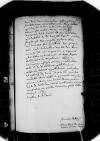Quae Gdańsk (Danzig, Dantiscum), city in northern Poland, on the Bay of Gdańsk at the mouth of the Vistula, on the Baltic, the biggest and wealthiest of the three Great Prussian Cities (Gdańsk, Thorn (Toruń), and Elbing (Elbląg)) with representation in the Council of Royal Prussia; a member of the Hanseatic League⌊GedaniGdańsk (Danzig, Dantiscum), city in northern Poland, on the Bay of Gdańsk at the mouth of the Vistula, on the Baltic, the biggest and wealthiest of the three Great Prussian Cities (Gdańsk, Thorn (Toruń), and Elbing (Elbląg)) with representation in the Council of Royal Prussia; a member of the Hanseatic League⌋ aguntur, sine dolore audiri non possunt. Utinam his malis obviam iri posset. Designati sunt legati ad Gdańsk (Danzig, Dantiscum), city in northern Poland, on the Bay of Gdańsk at the mouth of the Vistula, on the Baltic, the biggest and wealthiest of the three Great Prussian Cities (Gdańsk, Thorn (Toruń), and Elbing (Elbląg)) with representation in the Council of Royal Prussia; a member of the Hanseatic League⌊eam civitatemGdańsk (Danzig, Dantiscum), city in northern Poland, on the Bay of Gdańsk at the mouth of the Vistula, on the Baltic, the biggest and wealthiest of the three Great Prussian Cities (Gdańsk, Thorn (Toruń), and Elbing (Elbląg)) with representation in the Council of Royal Prussia; a member of the Hanseatic League⌋, quos volebat Reverendissima Dominatio Vestra, sed legatio nondum scripta est. Nunc propter pestis metum Sigismund I Jagiellon (Zygmunt I) (*1467 – †1548), King of Poland and Grand Duke of Lithuania (1506-1548); Duke of Głogów (Glogau) (1499-1506), Duke of Opava (1501-1506), Governor of Silesia (1504-1506); son of King Kazimierz IV Jagiellon and Elisabeth of Austria
Sigismund II Augustus Jagiellon (Zygmunt II August) (*1520 – †1572), 1529-1572 Grand Duke of Lithuania (ruled from 1544); 1530-1572 King of Poland (crowned vivente rege (ruled from 1548, after the death of his father); son of Sigismund I Jagiellon and Bona Sforza⌊serenissimi principesSigismund I Jagiellon (Zygmunt I) (*1467 – †1548), King of Poland and Grand Duke of Lithuania (1506-1548); Duke of Głogów (Glogau) (1499-1506), Duke of Opava (1501-1506), Governor of Silesia (1504-1506); son of King Kazimierz IV Jagiellon and Elisabeth of Austria
Sigismund II Augustus Jagiellon (Zygmunt II August) (*1520 – †1572), 1529-1572 Grand Duke of Lithuania (ruled from 1544); 1530-1572 King of Poland (crowned vivente rege (ruled from 1548, after the death of his father); son of Sigismund I Jagiellon and Bona Sforza⌋ hinc discedunt. Ego quoque hodie cogito Gołąb (Columba), village in Poland, 11 km NW of Puławy, 56 km NW of Lublin, Dantiscus was a parish-priest there in the years 1521-1537⌊ColumbamGołąb (Columba), village in Poland, 11 km NW of Puławy, 56 km NW of Lublin, Dantiscus was a parish-priest there in the years 1521-1537⌋ versus Deo bene iuvante. Ibi cum magis ero a negotiis istis liber, instructionem scribam. Sigismund I Jagiellon (Zygmunt I) (*1467 – †1548), King of Poland and Grand Duke of Lithuania (1506-1548); Duke of Głogów (Glogau) (1499-1506), Duke of Opava (1501-1506), Governor of Silesia (1504-1506); son of King Kazimierz IV Jagiellon and Elisabeth of Austria⌊Regia maiestas seniorSigismund I Jagiellon (Zygmunt I) (*1467 – †1548), King of Poland and Grand Duke of Lithuania (1506-1548); Duke of Głogów (Glogau) (1499-1506), Duke of Opava (1501-1506), Governor of Silesia (1504-1506); son of King Kazimierz IV Jagiellon and Elisabeth of Austria⌋ in Niepołomice, town in southern Poland, Małopolska, on the Vistula river, on the edge of a big forest called Puszcza Niepołomicka, 25 km E of Cracow, residence of Polish kings of Jagiellon dynasty; favourite place of royal huntings⌊NiepolomiceNiepołomice, town in southern Poland, Małopolska, on the Vistula river, on the edge of a big forest called Puszcza Niepołomicka, 25 km E of Cracow, residence of Polish kings of Jagiellon dynasty; favourite place of royal huntings⌋, Sigismund II Augustus Jagiellon (Zygmunt II August) (*1520 – †1572), 1529-1572 Grand Duke of Lithuania (ruled from 1544); 1530-1572 King of Poland (crowned vivente rege (ruled from 1548, after the death of his father); son of Sigismund I Jagiellon and Bona Sforza⌊iuniorSigismund II Augustus Jagiellon (Zygmunt II August) (*1520 – †1572), 1529-1572 Grand Duke of Lithuania (ruled from 1544); 1530-1572 King of Poland (crowned vivente rege (ruled from 1548, after the death of his father); son of Sigismund I Jagiellon and Bona Sforza⌋ in Lithuania⌊LituaniamLithuania⌋ absque coniuge proficiscitur.
Mitto Reverendissimae Dominationi Vestrae litteras restitutionis in integrum. Litteras appellationum puto fore, ut afferat dominus Mikołaj Loka (Mikołaj Lok) (†1569), collaborator of Stanisław Hozjusz as a royal secretary; in 1545-1547 he stayed in Rome; 1540 Ermland canon; 1547 - Poznań; 1560 abbot of the Cistercian monastery in Oliwa; 1550 envoy to the Prussian diet on behalf of King Sigismund II August (SZORC 1990, p. 331; KOPICZKO 2, p. 201)⌊LocaMikołaj Loka (Mikołaj Lok) (†1569), collaborator of Stanisław Hozjusz as a royal secretary; in 1545-1547 he stayed in Rome; 1540 Ermland canon; 1547 - Poznań; 1560 abbot of the Cistercian monastery in Oliwa; 1550 envoy to the Prussian diet on behalf of King Sigismund II August (SZORC 1990, p. 331; KOPICZKO 2, p. 201)⌋. Is, quae hic aguntur, narrabit, nam mihi in procinctu cum sim, plura scribere non vacat.
Deum precor, ut Reverendissimam Dominationem Vestram diu servet incolumem. Cuius me gratiae commendo.


 BCz 1618, p. 492
BCz 1618, p. 492